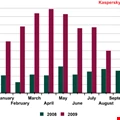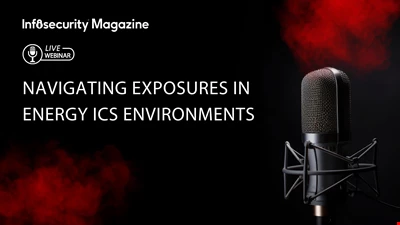Infosecurity News
Email Zeus trojan scams on the rise
Online criminals are stepping up their campaign to infectInternet users with the Zeus trojan, according to new research published by Atlanta-based managed security firm SecureWorks. Email campaigns in particular are on the rise, the company has said.
Gridsure wins prestigious business award for innovation
Gridsure, the security specialist that has developed a highly secure pictorial authentication alternative to PIN / passwords, has received a major award in France.
Are you up to the challenge? CARE challenges IT industry to climb peaks
CARE International is challenging the IT industry to its 3 Peaks Challenge raising money to help fight poverty.
Prevx apologizes over Microsoft black screen claim
Anti-malware firm Prevx has apologized to Microsoft after admitting that the 'black screen of death' - a condition that renders Windows unusable after bootup - was not caused by faulty system patches after all.
Flu spoof delivers trojan
The inevitable H1N1 flu trojan attacks have started. Yesterday, McAfee detected a new H1N1-related spam campaign, spoofing emails from the Center for Disease Control (CDC) and asking victims to fill out a 'vaccination profile' as part of a state-wide flu vaccination program.
Windows autorun trojan tops November malware chart
The latest monthly malware chart from BitDefender claims to show that the largest risk to computer users is currently Trojan.AutorunINF.Gen, a generic family of trojan malware abusing the autorun feature in Windows.
Feds tighten up cybersecurity hiring policies
The federal government is tightening up hiring policies for cybersecurity professionals by launching cybersecurity competency models for its employees.
Microsoft Windows security patches may cause `black screen of death'
Reports are coming in that a set of security patches for Windows XP, Vista and 7 may be causing problems for large numbers of PC users.
IBM scoops up Israel's Guardium for $225 million
After several weeks of rumour, IBM is reported to be acquiring Guardium, the enterprise database security specialist, for $225 million.
Bit.ly secures shortened URLs for users
Bit.ly the URL shortening service - which has been quietly overtaking Tiny.url, the industry first URL shortening service, over the last year - has stolen another march by adding security facilities.
Hackers waste no time in exploiting Tiger Woods car accident
Reports are coming in that hackers and malware authors have latched on to the weekend reports about golfing legend Tiger Woods being involved in a car accident close to his home.
Weekly brief December 1, 2009
Infosecurity reports on the past week's news
Bots used as password crackers
Botnet machines are being used as password crackers, according to data released by Microsoft on Friday.
iPhone worm author hired by Aussie software developer
News that the author of the first iPhone worm - Ikee - which hit tens of thousands of Australian iPhone users a few weeks ago - has been met with consternation by the IT security industry.
Allot web filtering helps ISPs lock out child pornography
Allot Communications has launched WebSafe, a web filtering service targeting broadband service providers to help protect against illegal content such as child pornography.
Physical and logical security worlds are converging - report
Research just published by Frost & Sullivan claims to show that the security credential convergence market is being driven by the use of smart cards for both physical and logical access, video content analysis for the automation of emergency procedures, and by the integration of building management systems with security systems.
100 000 New Zealanders hit by payment card skimming fraud
More than 100 000 debit and credit card holders in New Zealand are reportedly having their cards replaced as a result of a potentially major fraud involving a skimming device installed at an Auckland car park.
Corsaire highlights potentially serious flaw in web browsers
Corsaire, the international security consultancy, claims to have identified a potentially serious flaw with most popular web browsers.

Easing economy changes spam content
Better economic conditions mean that spammers are once again advertising third party products and services, rather than mounting spam campaigns attempting to garner business for themselves, a new report from Kaspersky said this week.
Godfather of spam Ralsky goes down
Spam king Alan Ralsky was sentenced to four years in jail this week, for pump-and-dump stock spamming. Nine other spammers were also sent to jail for the same crime.



